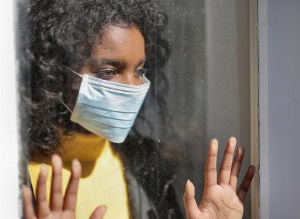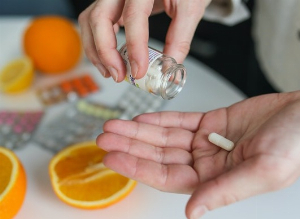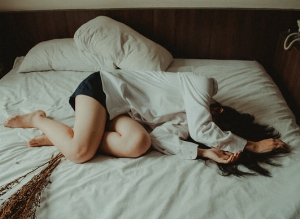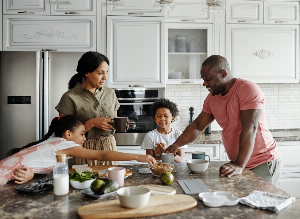End-of-Lockdown Anxiety
Published 26 May 2020 • By Léa Blaszczynski
Fear of infection, panic on public transport or in shops, readjustment to work, the need for consumerism, social pressure... The fears caused by the end of the COVID-19 lockdown are numerous.

According to the Office for National Statistics, almost three-quarters (72%) of adults in Great Britain are concerned about the effect that the COVID-19 pandemic is having on their life and approximately one-third are feeling anxious or stressed! This is not surprising when we know that a period in quarantine of only 10 days can predictive of post-traumatic stress disorder, according to a synthesis of 24 studies carried out in 10 different countries by The Lancet.
Social anxiety and impulsive behaviour
This emotional state even has a name: cabin fever. It corresponds to the fear of leaving home or of coming into contact with others again after a long period of isolation. The variety and intensity of the symptoms is specific to each person: fatigue, difficulty getting out of bed in the morning or needing frequent naps, lethargy, sadness or depression, loss of patience, irritability, etc.
Social phobias are thus on the rise, such as agoraphobia (fear of crowds, of a place from which it is difficult to be rescued), anthropophobia (fear of people, also known as social anxiety disorder) or blemmophobia (fear of the gaze of others, of being judged or perceived as abnormal). Excessive behaviour and the need to "make up for lost time", such as taking risks to find loved ones, compulsive shopping, overeating or drinking, etc., are also common.
How can I come out of lockdown successfully?
This period is all the more difficult as there are still many uncertainties. Mental or emotional overload can be alleviated if the rules are clear and the measures are concrete: wear a mask, follow markings on the floor in shops, respect physical distances, etc.
Therefore, if you are suffering from anxiety, don't hesitate to go for a walk in the open air or nature if you can. This will allow you to get back in touch with the outdoors while enjoying the spring weather. Get back into a good sleeping pattern by setting your alarm clock in the morning and cutting back on naps during the day. Plan outings with defined objectives: go shopping for a specific recipe, walk around the neighbourhood, bring your glass bottles to a recycling bin, etc.
Above all, be kind to yourself, do things at your own pace during this mourning phase. You must accept that daily life will be turned upside down again and that life will not be exactly the same as before. Do not hesitate to contact a professional if you feel the need, you can also consult the Samaritans mental health support platform for free, by phone, email, or their new mobile app.
Finally, while it is essential to remain vigilant and to respect the barrier gestures, keep in mind that in case of infection, the seriousness of the disease is most often very low with, on average, a rate of serious complications below 15% and a mortality rate below 1%. Obviously, these rates are higher in those at risk, such as the elderly, who require even more rigorous precautions than others. But even if they have conditions identified as risk factors (obesity, diabetes, cancer and other chronic diseases), the vast majority of adults do not develop severe forms. If you have any doubts about the precautions you should take, do not hesitate to contact your medical team.
Helpful links
- The Samaritans: emotional support 24 hours a day - in full confidence. Call 116 123 or email jo@samaritans.org.uk
- Shout Crisis Text Line: for support in a crisis, text Shout to 85258.
- Anxiety UK: Charity providing support if you have been diagnosed with an anxiety condition. Call 03444 775 774 (M-F 9:30am-10pm, S-S 10am-8pm)
- Rethink Mental Illness: Support and advice for people living with mental illness. Call 0300 5000 927 (M-F 9:30am-4pm)
- SANE: Emotional support, information and guidance for people affected by mental illness, their families and carers. Call 0300 304 7000 (Daily 4:30pm-10:30pm)
Textcare: comfort and care via text message, sent when the person needs it most: www.sane.org.uk/textcare
Peer support forum: www.sane.org.uk/supportforum
Was this article helpful to you? Do you have any thoughts to share with the community?
Take care and stay home!
Sources :
https://www.ons.gov.uk/peoplepopulationandcommunity/healthandsocialcare/healthandwellbeing/bulletins/coronavirusandthesocialimpactsongreatbritain/22may2020#indicators-of-well-being-and-loneliness
https://www.thelancet.com/journals/lancet/article/PIIS0140-6736(20)30460-8/fulltext
https://www.insee.fr/fr/statistiques/4478728?sommaire=4476925#consulter-sommaire
https://www.atoute.org/n/article383.html?fbclid=IwAR2vE585iM_s5qZxD2MQYLPn7fH2YNgS4OnVLnn58ijDQT2mVZCcHU6mMTU

 Facebook
Facebook Twitter
Twitter






